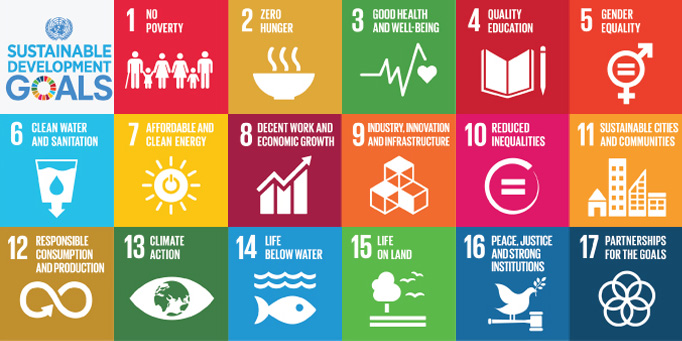|
31 July 2017
United Nations Sustainable Development Goal 16: the "Enabling Goal"
In January SAHA published a news story about participating in developing an indicator for the United Nations Sustainable Development Goal (SDG) 16. In that story SAHA mentioned that it would be working with the Africa Freedom of Information Centre (AFIC) on their "State of the Right to Information in Africa Report", we have since worked with AFIC on South Africa's contribution to the report. The final report is due on the 7th of August 2017 after which AFIC will compile the entire report and submit it to UNESCO who will work to ensure that this report is part of the UN Secretary General's report to the General Assembly in September 2017
In keeping with the theme of SDG's SAHA recently attended the second National Consultation on Monitoring SDG 16. The consultation was aimed at further developing a tool that could be used by grassroots activists and partners to create awareness of SDG 16 as well as the implementation of a monitoring methodology. Perhaps we can just say that while SAHA did not have substantial comments to make on the tool being a part of the audience on a talk by Abdoulaye Mar Dieye, the Assistant Administrator and Director of UNDP's Regional Bureau for Africa, was interesting and instructive. The highlights of his talk were that:
- The African Union's Sustainable Development Agenda 2063 is 90 percent compatible with the SDG's. They are mutually supportive with very few differences. Among the few differences is the fact that the SDG's set broader increases whereas the Agenda 2063 does set specific targets for increases in a sector. Thus it requires the domestication of the SDG's into the specific contexts of each country by all players including government, civil society and even the private sector. If this is done then one can expect to see both the UN SDG's and the Agenda 2063 achieved. The way it should be done is to prioritise those SDG's that are relevant to each country's National Development Plan and to push for those SDG's to be implemented first.
- The reason domestication of SDG's is important is because there is a synergy between each of the goals. That is why countries have to develop the capacity to manage trade-offs, because the synergy between goals means that achieving one goal could be positive or negative towards the achievement of another goal. Civil society can play an important role in managing trade-offs because there are things that civil society can do that government may not be able to.
- If certain goals are implemented effectively they could have a knock on effect on the other goals. the greatest knock on effect would take place if goal 16 is fully implemented, because good governance has a great impact on the curbing of illicit financial flows, illicit flow of fire arms, and if states are able to control these two then there is likely to be peace and stability on the continent. Therefore, civil society partners working on and pushing for implementation of goal 16 should not see their work as being in isolation from work done on other SDGs. Rather work done in relation to SDG 16 should be seen as multiplying or an enabling work.
- Africans should not always look to Latin America and Asia to find solutions, because there are innovative solutions that are being implemented in Africa. They should identify these good things, amplify them and export them to the rest of the world. An example is the good work being done in Ethiopia and Rwanda presently.
- There is hardly anything that can be achieved in the SDG without the role of civil society, but there needs to be complementary roles between all actors.
As an organisation working to ensure public access to information, particularly within the context of supporting struggles for justice and protection of fundamental freedoms, SAHA is looking forward to contributing to the work done in South Africa (and Africa more broadly) on SDG 16.

|





